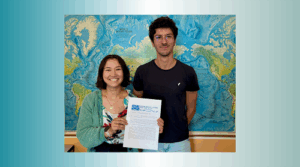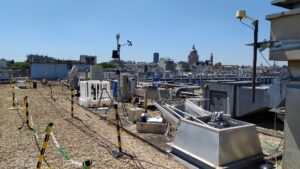Séminaire
PhD Seminar (Clara Azarian et Robin Rolland)
Clara Azarian et Robin Rolland
Séminaire du LOCEAN.
Description
Clara Azarian • Implications of climate change for the management of the Patagonian toothfish fisheries in the Southern Indian Ocean
I will present a short work that I did last summer, in parallel to my PhD, for the Office of european and international affairs at the Fisheries Branch of the French Ministry of Agriculture, on the implications of climate change for the management of the Patagonian toothfish fisheries in the Southern Indian Ocean. The Patagonian toothfish is a demersal fish that represents an important economic resource for the French Southern territories and is particularly fished in Kerguelen EEZ.
The aim was to:
i) review the scientific knowledge on the potential impacts of climate change on this species,
ii) review how those fisheries are currently managed in the Southern Indian Ocean and
iii) determine whether the current regulatory frameworks are adapted or not to a changing environment and provide some recommandations.
This case study also contributes to further discussing how to account forclimate change in fisheries management and how to communicate science to policy-makers.
Robin Rolland • Internal wave-mesoscale interactions in the Sicily Channel area in a submesoscale-permitting simulation
How balanced mesoscale kinetic energy is transfered to dissipative scales in the ocean is still an open question. Internal wave-mesoscale interactions are believed to be one of the route permitting this forward energy cascade towards smaller scales. In this seminar, I will present the internal wave dynamic of the Sicily Channel area and how it interacts with the mesoscale field thanks to twin 1/60° simulations (NEMO-eNATL60 with and without explicit tidal forcing).
Insights of an enhanced summer forward energy cascade due to the presence of internal tides are presented. Diurnal-inertial motions, forced by a strong thermal breeze in summer, are trapped in mesoscale
anticyclonic eddies. Evidence of inertial chimneys (downward propagation of inertial energy toward the basis of the eddy) are shown. This mechanism increases the shear at depth and can lead to enhanced mixing activity and energy dissipation.
Informations supplémentaires
Lieu
LOCEAN
Sorbonne Université, Campus Pierre et Marie Curie (Jussieu)
Couloir 45-55, 4e étage, pièce 417






